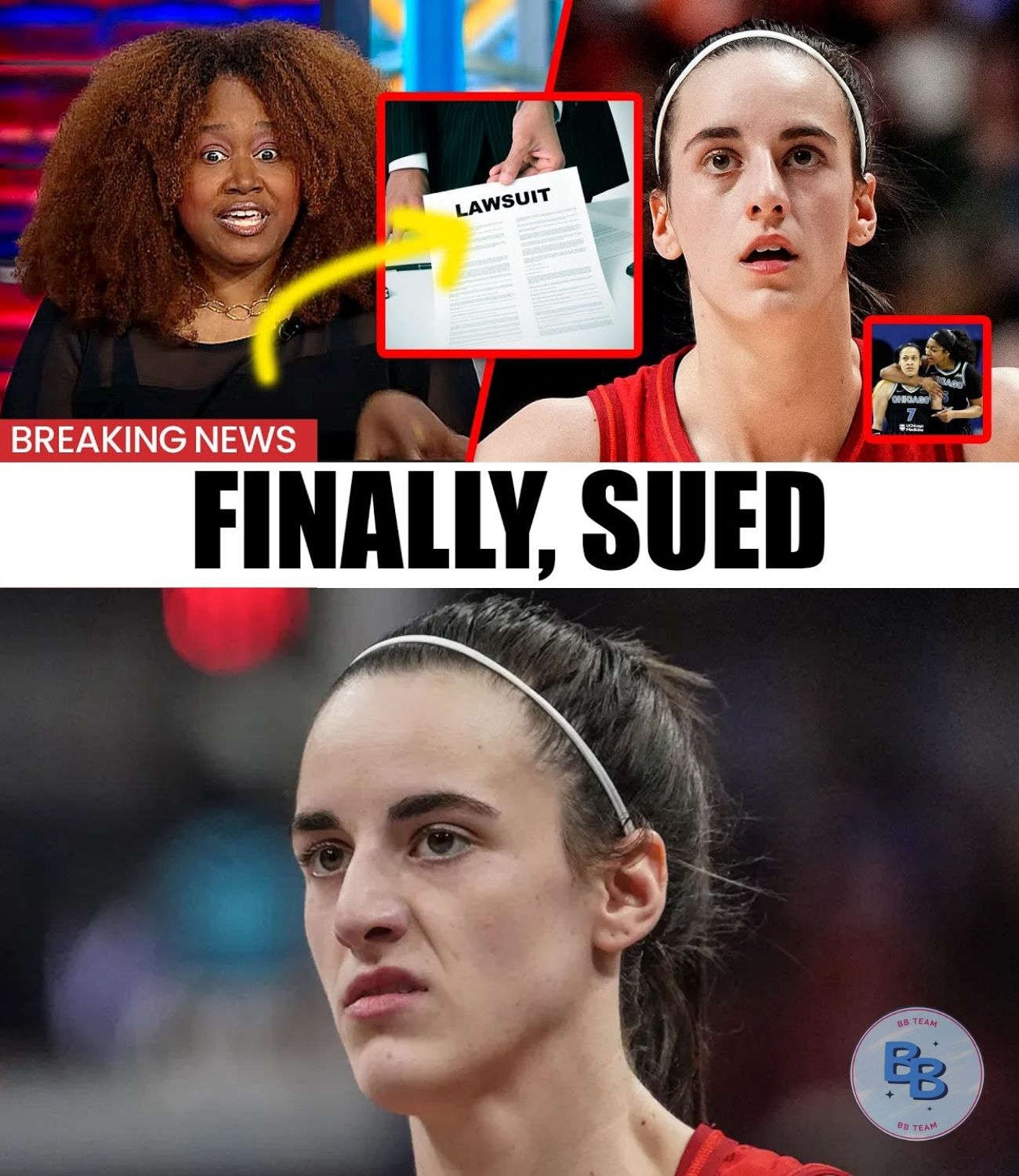In a dramatic twist, Caitlin Clark has reportedly filed a lawsuit against an ESPN reporter for spreading false information. The controversy began with an off-hand remark that quickly spiraled into a media frenzy, distorting Clark’s image and intentions. The reporter’s comments implied that Clark was purposely distancing herself from her black teammates to chase a white savior narrative—a statement loaded with assumptions and racial tension.

Caitlin Clark, known for her incredible basketball skills and rising star status, found herself at the center of a storm of lies, clickbait headlines, and hate-filled narratives. The ESPN segment suggested that Clark was stat padding and weaponizing her image, igniting debates that had little to do with basketball and everything to do with identity politics.
The backlash was swift, with fans and analysts dissecting Clark’s past interviews, game footage, and social media posts for evidence to support the narrative. Despite the negativity, Clark remained focused on her game, showcasing her talent and proving her critics wrong.
The lawsuit, according to sources, alleges that the ESPN reporter knowingly broadcast false information with the intent to harm Clark’s reputation. Her legal team is building a case around defamation, character damage, and the psychological toll it took on her. This legal action is not just about correcting the record; it’s about holding media accountable for their narratives.
Caitlin Clark’s response has been both strategic and impactful. She returned to the court, letting her talent speak louder than the noise. Her gameplay became a direct counter-punch to the false image painted by the media. With every shot and record broken, Clark demonstrated her resilience and determination.
The lawsuit has sparked a broader conversation about how female athletes are portrayed in the media, especially those who dominate in spaces historically centered around different narratives. It challenges the media to examine their role in shaping public perception and highlights the importance of truthful reporting.
As the media scrambles to rewrite their scripts and distance themselves from the controversy, Caitlin Clark continues to rise above the noise. Her focus remains on her game and her legacy, proving that she is not just a headline but a fighter and game-changer.
Caitlin Clark’s impact on the WNBA is undeniable. Her presence draws record audiences and elevates the league’s visibility. As discussions around player salaries and endorsements continue, Clark’s influence is pushing the boundaries of what’s possible for women’s sports.
Whether the lawsuit ends in court or is settled privately, Caitlin Clark has sent a clear message: she will not let lies define her legacy. Her actions remind us that athletes have the power to challenge narratives and demand accountability, paving the way for a more equitable and respectful sports media landscape.
